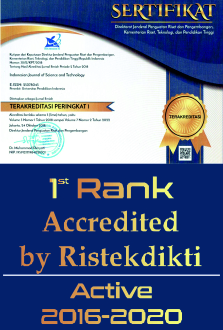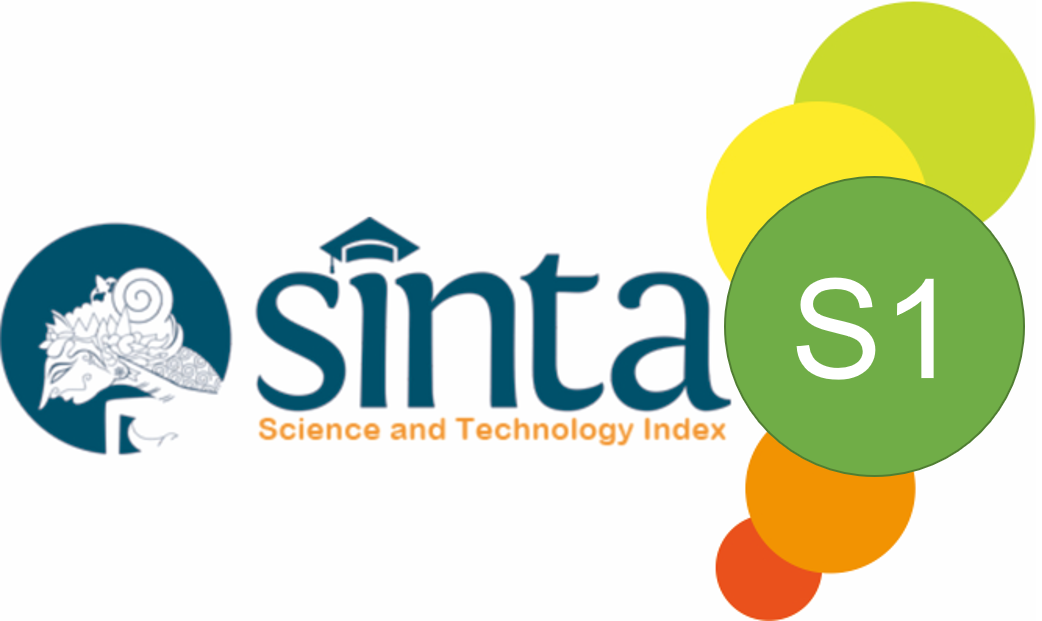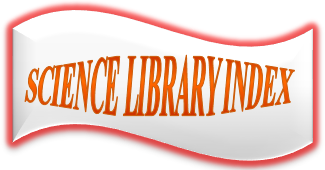Students’ Algebraic Proficiency from the Perspective of Symbol Sense
Abstract
Algebraic proficiency, including procedural fluency and conceptual understanding, is widely discussed worldwide. Algebraic proficiency refers largely to proficiency in symbolic representations which can be investigated through a framework of symbol sense. This research, therefore, aims to analyze students’ algebraic proficiency in terms of symbol sense. We set up a pilot study, involving 22 Indonesian mathematics education students (18-19 year old), in the form of two weeks teaching that combine a conventional approach and the use of a camera calculator in the learning and teaching of quadratic and related equations. The results showed that more than half number of students lacks of symbol sense in the sense that they tend to use procedural strategies rather than symbol sense strategies in solving equations. From the perspective of symbol sense, we concluded that the students acquired more on procedural fluency than on conceptual understanding.
Keywords
Full Text:
PDFReferences
Arcavi, A. (1994). Symbol sense: Informal sense-making in formal mathematics. For the Learning of Mathematics, 14(3), 24–35.
Arcavi, A. (2005). Developing and using symbol sense in mathematics. For the Learning of Mathematics, 14(3), 42–47.
Bokhove, C., & Drijvers, P. (2010). Digital activities for capturing symbol sense. For the Learning of Mathematics, 30(3), 43-49.
Bokhove, C., & Drijvers, P. (2012). Effects of feedback in an online algebra intervention. Technology, Knowledge and Learning, 17(1-2), 43-59.
Brown, G., & Quinn, R. J. (2007). Investigating the relationship between fraction proficiency and success in algebra. Australian Mathematics Teacher, 63(4), 8-15.
Drijvers, P. (2000). Students encountering obstacles using a CAS. International Journal of Computers for Mathematical Learning, 5(3), 189-209.
Drijvers, P., Godino, J. D., Font, V., & Trouche, L. (2013). One episode, two lenses: a reflective analysis of student learning with computer algebra from instrumental and onto-semiotic perspectives. Educational Studies in Mathematics, 82(1), 23-49.
Hoch, M., & Dreyfus, T. (2005). Students' Difficulties with applying a familiar formula in an unfamiliar context. International Group for the Psychology of Mathematics Education, 3, 145-152.
Jupri, A., Drijvers, P., & Van den Heuvel-Panhuizen, M. (2014). Difficulties in initial algebra learning in Indonesia. Mathematics Education Research Journal, 26(4), 683-710.
Jupri, A., Drijvers, P., & Van den Heuvel-Panhuizen, M. (2016). An instrumentation theory view on students’ use of an applet for algebraic substitution. International Journal for Technology in Mathematics Education, 23(2), 63-80.
Katz, V. J. (2007). Stages in the history of algebra with implications for teaching. Educational studies in mathematics, 66(2), 185-201.
Kilpatrick, J. (2001). Understanding mathematical literacy: The contribution of research. Ed-ucational studies in mathematics, 47(1), 101-116.
Mullis, I. V. S., Martin, M. O., Foy, P., & Arora, A. (2012). TIMSS 2011 international results in mathematics. Boston: TIMSS & PIRLS International Study Center.
Novotná, J., & Hoch, M. (2008). How structure sense for algebraic expressions or equations is related to structure sense for abstract algebra. Mathematics Education Research Journal, 20(2), 93-104.
Rohmah, A. A., & Rachmawati, R. (2019). Utilization and quality of information system for administration services based on ICT in Patehan, Kraton, Yogyakarta. Indonesian Journal of Science and Technology, 4(1), 55-63.
Skemp, R. R. (1976). Relational understanding and instrumental understanding. Mathemat-ics Teaching, 77(1), 20-26.
Van Stiphout, I., Drijvers, P., & Gravemeijer, K. (2013). The development of students’ alge-braic proficiency. International Electronic Journal of Mathematics Education, 8(2-3).
Webel, C., & Otten, S. (2016). Teaching in a world with photomath. Mathematics Teacher, 109(5), 368-373.
DOI: https://doi.org/10.17509/ijost.v5i1.23102
Refbacks
- There are currently no refbacks.
Copyright (c) 2020 Indonesian Journal of Science and Technology

This work is licensed under a Creative Commons Attribution-ShareAlike 4.0 International License.
Indonesian Journal of Science and Technology is published by UPI.
View My Stats





















